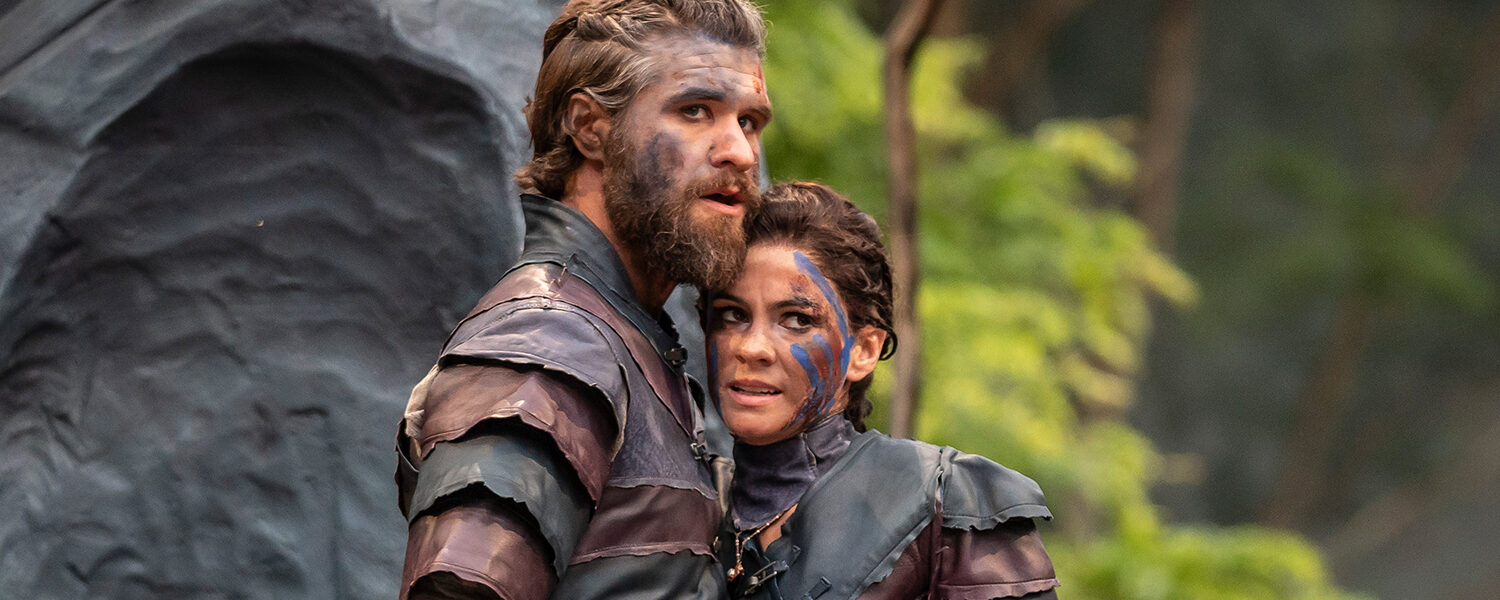Contact Us
American Players Theatre
5950 Golf Course Road
P.O. Box 819
Spring Green, WI 53588
(Map)
Box Office: 608-588-2361
Administration: 608-588-7401
Fax: 608-588-7085
American Players Theatre
5950 Golf Course Road
P.O. Box 819
Spring Green, WI 53588
(Map)
Box Office: 608-588-2361
Administration: 608-588-7401
Fax: 608-588-7085

By Gwendolyn Rice, Isthmus, July 3, 2019
The opening scene of Shakespeare’s Macbeth will, quite simply, take your breath away.
Onstage at American Players Theatre through Oct. 4, the play begins with a rugged and fierce, but primitive band of soldiers emerging from the woods behind the outdoor stage. They briefly pause to discuss their battle plan, then run at top speed toward the audience and up the aisles, weapons drawn and battle cries filling the air.
The tribe of Scottish warriors — led equally by men and women — seem to have sprung directly from the woods. They are clothed in layers of patched fabric tunics and leggings, with leather belts in colors of the forest, from slate and moss to dark garnet and clay. (Exceptional costume design by Daniel Tyler Mathews.) With their faces painted for battle with blue and red stripes and their hair braided wildly, these soldiers are the army of King Duncan (a strong Triney Sandoval), which has just put down a rebellion, led by a nobleman from their own inner circle.
Despite this irrefutably dramatic opening, this is not the Braveheart action movie version of Macbeth, filled with huge battles, supernatural forces and superhuman feats. It is a smaller, perhaps more universal story of one member of a community betraying the others. The ensuing play illustrates the chain reaction that follows Macbeth’s horrific act of treachery — and the resulting shame and misery that destroy him completely.
APT Core Company Member Marcus Truschinski is a human-sized Macbeth. Striding across the stage in layers of leather armor, he begins the play powerful and triumphant in battle. In quick succession he is rewarded by his king, lauded by his fellow soldiers and welcomed home with passionate embraces by his wife. But the witches’ prophecy has illuminated a selfish, irrational ambition that grows alongside indecision. Though a soldier, he is not a natural murderer. This dissonance will continue to haunt him instead of literal ghosts.
The trio of witches (Tracy Michelle Arnold, Carolyn Ann Hoerdemann and Samantha Newcomb), clad in robes the color of a misty morning, aren’t the plotting, scheming hags you may have seen before. In fact, as director James DeVita writes in his program notes, they wield “no actual power over Macbeth” in this production. These weird sisters aren’t casting spells, so much as they can see the future — scratching sacred stones and falling into zombie-like trances at the sound of a high-pitched siren. (Otherworldly choreography by Jessica Bess Lanius.)
Read the full review here!